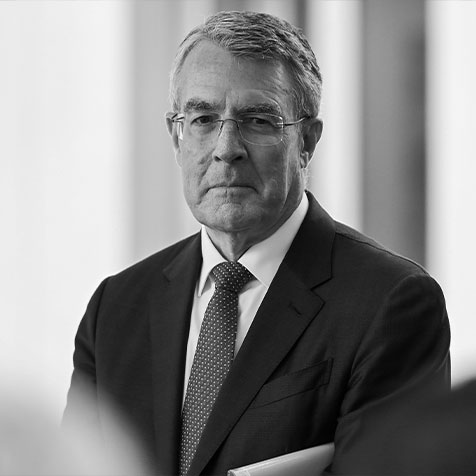Loading component...
At a glance
By Gary Anders
After years of surveillance and information gathering, the Australian Federal Police (AFP) finally pushed the fire button on Operation Avarus-Nightwolf in late October 2023.
Launching simultaneous raids on 20 properties across the country, some 240 AFP officers, joined by around 90 forensic specialists and other specialists including dog handlers, moved to smash Australia’s biggest money laundering syndicate, known as Long River.
The raids led to the seizure of an estimated A$160 million in assets – including luxury properties, cars, boats, cash and cryptocurrency – and to the arrests of seven people. With the help of accomplices working in banks, they allegedly laundered hundreds of millions of dollars that had been earned from a range of illegal activities.
The Australian Institute of Criminology estimates that serious and organised crime cost the Australian community up to A$60.1 billion in 2020–21, with illicit financing at the centre of most crime types.
The United Nations Office on Drugs and Crime (UNDOC) estimates that between 2 and 5 per cent of global gross domestic product (GDP) – or between US$800 billion (A$1.2 trillion) and US$2 trillion (A$3 trillion) – is laundered globally.
AUSTRAC, Australia’s anti-money laundering and counter-terrorism financing (AML/CTF) regulator and financial intelligence unit, reports that in 2022–23 it handled more than 317,000 suspicious matter reports from external parties relating to transactions potentially linked to crime.
Call To Action Resources
Tranche two reforms in Australia

In April 2023, Australian Attorney-General Mark Dreyfus released the first of two consultation papers on proposed reforms to Australia’s AML/CTF regime to capture additional tranche two “high risk entities”.
These include “gatekeeper” professions that manage financial transactions, such as accountants, lawyers, trust and company service providers, real estate agents, and dealers in precious metals and stones.
Dreyfus says the reforms will bring Australia into line with the standards recommended by the Financial Action Task Force (FATF), which leads global action to tackle money laundering, terrorist and proliferation financing on behalf of over 40 member countries.
Currently, Australia is one of only five jurisdictions that do not regulate tranche two entities under an AML regime – the others are Mainland China, Haiti, Madagascar and the US.
“Significant regulatory gaps and vulnerabilities have made Australia an increasingly attractive destination for laundering illicit funds,” Dreyfus says.
"Significant regulatory gaps and vulnerabilities have made Australia an increasingly attractive destination for laundering illicit funds. Left unaddressed, Australia’s financial system would remain vulnerable to criminal exploitation through the use of professional services, weakening the overall integrity of Australia’s AML/CTF regime."
“Left unaddressed, Australia’s financial system would remain vulnerable to criminal exploitation through the use of professional services, weakening the overall integrity of Australia’s AML/CTF regime.
“Since 2015, Australia has failed to comply with 16 out of 40 FATF Standards, including extending the AML/CTF regime to tranche two entities. As a result, Australia now risks being ‘grey-listed’ by the FATF, which could result in significant harm to our economy.”
Dreyfus says accountants, lawyers and other tranche two entities are particularly vulnerable to exploitation by transnational, serious and organised crime groups and terrorists seeking to disguise ownership.
This includes the ownership or controls of assets, concealing the origins and purposes of financial transactions, facilitating tax evasion and, ultimately, laundering the proceeds of crime.
“Operating through or behind a professional adviser can provide a veneer of legitimacy to criminal activity,” Dreyfus says.
“These practitioners can be used to create complex structures that create distance between criminals and their illicit wealth, and facilitate obscuring property ownership, providing ideal opportunities for laundering large volumes of illicit funds.”
Singapore sting triggers overhaul

In Singapore, the recent discovery of a multi-billion-dollar money laundering syndicate that led to multiple arrests was the major trigger for a series of proposed legislative reforms announced in October 2023, which are designed to refine the country’s AML framework.
They include new legislation that will require all companies and individuals providing corporate services (CSPs) to register with Singapore’s Accounting and Corporate Regulatory Authority. CSPs will also be required to implement group-wide AML/CTF policies for their branches and subsidiaries in Singapore or elsewhere to have a group policy for mitigating their AML/CFT risks.
The legislation will introduce a fine of up to SGD$100,000 (A$111,320) on directors, owners or partners of CSPs for breaches of AML/CTF obligations.
Singapore will also form an inter-ministerial committee to prevent corporate structures from abuse by money launderers, to enhance controls by financial institutions, and to centralise and strengthen capabilities across government agencies to better detect suspicious activities.
Hong Kong largely compliant
In early 2023, the FATF issued its first regular follow-up report on Hong Kong’s compliance with the FATF’s AML/CTF recommendations, concluding it was “largely compliant”.
Hong Kong has recently implemented risk-based AML/CTF supervision for most Designated Non-Financial Business or Profession (DNFBP) sectors, including accountants, real estate agents and trust and company service providers.
Hong Kong’s requirements cover three main areas: suspicious transaction reporting, monitoring clients and their owners against designated sanctions lists of entities and persons, and client due diligence (CDD).
"If the Australian Government does not consider the existing obligations of professional accountants in their design of the AML regime, it will be unnecessarily onerous for smaller accounting firms – and the cost of compliance will outweigh the benefits of tackling money laundering."
“The first two are not that onerous to comply with,” says RSM Hong Kong partner Gary Stevenson, who is the head of IFRS and independence in the firm’s technical department. “The CDD is limited to specified transactions or trust and company secretarial services. Audit is generally not considered a specified transaction.
“Larger firms generally do not provide trust and company secretarial services as part of their audit business. This will generally be a separate business unit or they may not do it. For the smallest firms, there may be no separation. The smaller end of the market has probably been affected more.”
The Hong Kong Institute of Certified Public Accountants (HKICPA) published AML/CTF guidelines, sample AML/CTF policies, templates and FAQs after the local legislation was enacted.
“Many, if not most, small and medium sized audit firms adopted these materials and they were very helpful,” Stevenson says. “Larger firms already had more sophisticated AML/CTF policies and procedures in place to satisfy the requirements of their global accounting networks.
“Overall, the sector appears to have received the new AML/CTF regime well. It is simply part of the client acceptance or reacceptance process now.”
One size does not fit all
CPA Australia’s business investment and international lead, Gavan Ord, says accountants are already obliged to comply with a range of legal, professional and ethical standards, many of which cross over with AML/CTF reporting requirements.
“We would like to see that recognised in the design of the regime for professional accountants in Australia. Avoiding such duplication should reduce the regulatory burden on professional accountants, but still achieve the policy objective of reducing money laundering,” Ord says.
“The overwhelming majority of accounting firms have fewer than 10 employees, so it is important that the regime is designed with this in mind. A regime designed for Australia’s Big Four banks does not work for a small accounting practice.
“What we have been encouraging the government to do is to focus the AML regime on high-risk areas and functions, rather than applying the same requirements to a suburban accounting practice as they do to a large bank.
“If the Australian Government does not consider the existing obligations of professional accountants in their design of the AML regime, it will be unnecessarily onerous for smaller accounting firms – and the cost of compliance will outweigh the benefits of tackling money laundering.
“Accountants understand the need to tackle money laundering, and they understand the need to reduce the risk that they will be used for money laundering.
“However, if the compliance requirements associated with AML are not tailored to the size and risks associated with small accounting practices, the regime will be burden them unfairly.”
In New Zealand, accountants have been a key part of the AML/CTF reporting framework since October 2018.
Milan Cooper, CEO of anti-money laundering tech company First AML, says the implementation of tranche two reforms in Australia will create new compliance obligations for accountants and other industries.
“It does put more onus on accountants to know their customer and conduct customer due diligence when they’ve been engaged,” Cooper says. “What I would say to that is, when this does come about, make sure you look at how you can streamline this and leverage software to make your life easy.
Implementation can become an administrative burden, Cooper adds, but technology can help accountants to verify the identity of their clients remotely and manage the document collection process.
“Where the challenge really comes in with this regime is the onboarding of companies, trusts, partnerships or other types of complex entities.
“They are more onerous because, under the AML rules, generally you need to verify all the directors of a company or any shareholder with 25 per cent or above. The complexity and the amount of documentation you have to collect increases when onboarding those types of clients.”
Cooper says it is important to recognise that criminals use accountants and lawyers to set up entities that can be used to launder money and support their illegal activities.
“When you dig into the horrors of the criminal underworld, you realise it makes sense that we follow this legislation and play our part to limit criminal exploitation of the financial system.”

